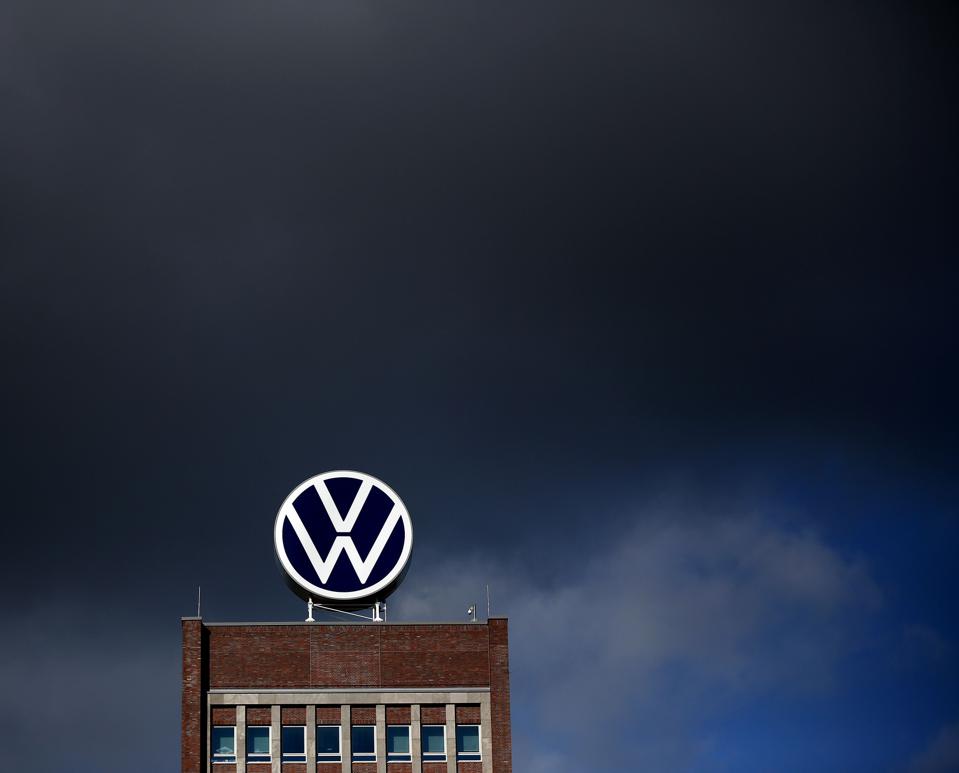After Five Years, Europe’s ‘Dieselgate’ Victims Have Still Not Been Compensated

Dark clouds still hang over VW for its diesel emissions scandal.
Five years ago today, the automotive world was rocked by explosive allegations that Volkswagen had been cheating on its air pollution emissions tests. The practices, discovered in the United States, soon proved to be widespread both in terms of geography and manufacturer.
While U.S. consumers who were duped in the so-called “Dieselgate scandal” have been compensated €9.5 billion through class action lawsuits, most consumers in Europe have not received any compensation. A report from European consumer organisation BEUC released on the five-year anniversary of when the scandal broke has found that VW is “continuing its stalling tactics, exploiting legal loopholes and taking advantage of the uneven access to justice of European consumers”.
“It is shameful that Volkswagen is refusing to compensate European consumers for the massive harm caused by VW’s deceit in the Dieselgate scandal, despite having compensated US consumers,” says BEUC Director General Monique Goyens.
“After breaking the law on a massive scale, VW has ignored consumers’ justified claims. We will not let this pass. In many countries our member groups have picked up the gauntlet against Volkswagen.”
VW is also preparing to pay out approximately A$120 million to 43,000 people who joined a class action lawsuit in Australia, and a court in Chile has approved payouts of $500 to each consumer affected by the cheating there.
However in Europe, only German consumers have been compensated for the emissions test manipulation. Following a settlement reached in April, VW will have to pay about €750 million to 240,000 VW owners. The settlement came after a German court ruled that the purchase of a VW car equipped with a defeat device harmed consumers and they are entitled to obtain compensation. Goyens says the reason that this happened in Germany is because the country recently put into place a law establishing a class action procedure. While such procedures are common in the U.S., they are not available to consumers in most European countries.
BEUC says VW is refusing to engage in settlement talks with consumer organisations in other European countries, because those countries don’t have the ability for consumers to sue collectively. They say this shows the need to quickly implement an EU law giving the right to collective redress (the European term for class action lawsuits) across the bloc. Such a law has been approved at EU level but is not yet on the books.
“Volkswagen’s outrageous behaviour underlines the need for EU countries to urgently adopt ambitious measures to implement the imminent EU law on collective redress so as to make sure consumers are not denied compensation when a second Dieselgate hits,” says Goyens.
A spokesperson for VW said the company can’t comment on the ongoing legal disputes in around 50 countries. Hiltrud Werner, the VW management board member overseeing integrity and legal affairs, said while the company can’t avoid all future legal issues, it is confident changes have been made to avoid another system situation as occurred with Dieselgate. “A company the size of Volkswagen, with 670,000 employees, probably will have issues in future,” he said. “Fraudulent activities, I’m absolutely certain, cannot creep into processes and the organisation for 10 years as it was before the Diesel crisis”.
According to the BEUC report, ten consumer groups across the EU are still fighting in court against Volkswagen. It identifies what it calls “procedural barriers” raised by VW, such as questioning whether it can be sued in a foreign court. An attempt to raise this objection in Austria was rejected by the EU’s top court.
*** This article has been archived for your research. The original version from Forbes can be found here ***